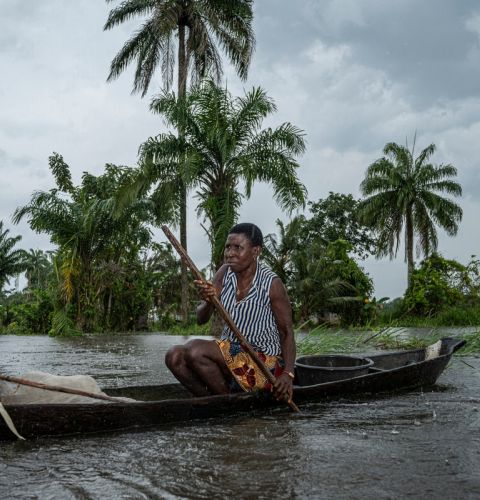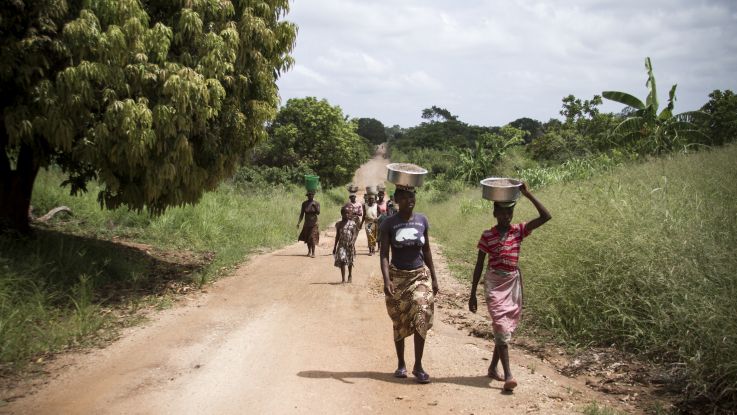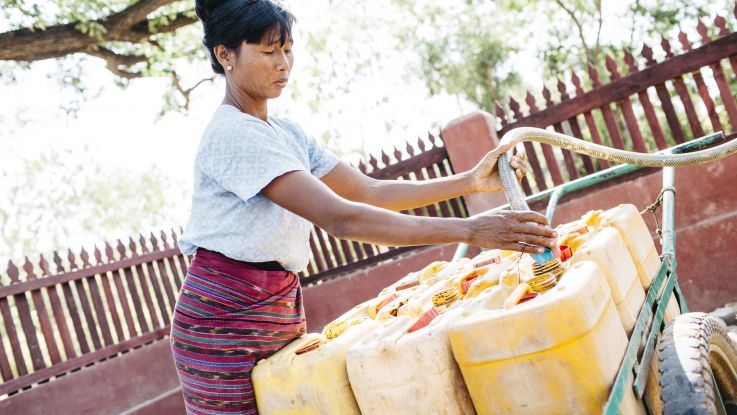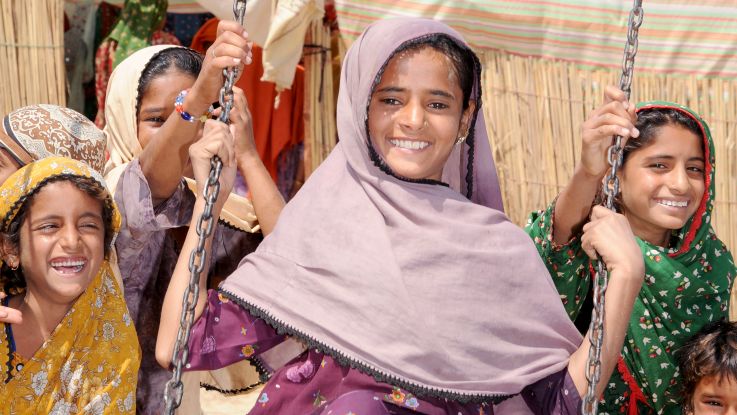Nigeria
Why we work in Nigeria
Nigeria is often referred to as the ‘giant of Africa’ because of its large economy and population – but it also faces some of the world’s biggest development challenges.
A rapidly growing population has overwhelmed the education system, meaning that 1 in 3 children are not in school. Those that are face huge class sizes, poorly trained teachers and the threat of attack from armed groups.
The world caught a glimpse of these dangers when 200 girls were abducted from a school in 2014.
Women’s rights and poverty in Nigeria
Women in Nigeria earn on average 25% less than their male counterparts, and despite making up the majority of the agricultural workforce, they are often not in control of the land they work on.
Despite these challenges, the poor in Nigeria can pay more in taxes than multinational oil and energy companies. It is estimated that US$15 billion was lost to illegal financial flows each year, most of which is a result of harmful tax practices.
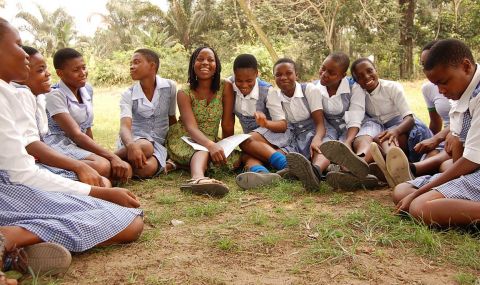
Girls in Nigeria taking training with ActionAid about reproductive health, periods and sexually transmitted diseases, including prevention of HIV/AIDs.
What we do in Nigeria
Since we started working in Nigeria in 2000 we have reached thousands of people across 12 states in Nigeria.
We work with parents, teachers, community and religious leaders to challenge entrenched attitudes that stop families from sending their daughters to school, and address the reasons why girls are likely to drop out.
We support women's rights by encouraging communities to adopt policies that protect women and girls, and to compensate survivors of violence.
And we call upon multinational corporations to pay their taxes, and for the government to use this money to provide decent public services.
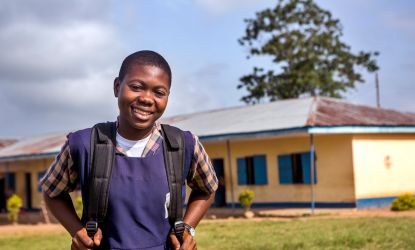
11-year-old Queen wants the government to provide free education, so all children can go to school.
Andrew Esiebo/Shoot The Earth/ActionAid
Helping girls go to school: Queen’s story
11-year-old Queen likes going to school: she said wants to become a lawyer, so she can work for social and environmental justice.
She participated in the Global Campaign for Education, which made her more aware of the importance of education.
She is now motivated to campaign on the importance of schools to children who are out of school in her community.
The Global Campaign for Education is joint campaign working to promote children's and adult education, through research and advocacy, in over 100 countries around the world.
Help support our work in Nigeria
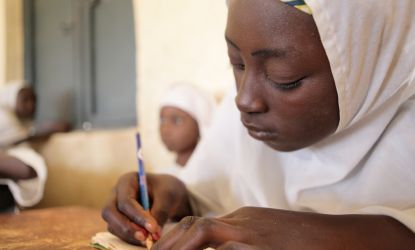
Education in Nigeria: Hadiza’s story
Hadiza works hard at school, and got high marks in her final year exams. She says:
I don’t have anything bothering my education and schooling. My teachers teach me well in school and I get support from my brother at home.”
ActionAid supports education for girls like Hadiza by pressing local authorities to recruit more female teachers, since Muslim parents are often more likely to send girls to school with female teachers.
We also build separate toilets for girls, so that they do not have to miss school when on their periods.
Learn more about our work supporting girls' educationHadiza at school in Nigeria
Akinkugbe Okikiola/ActionAid
Page updated 6 February 2026
